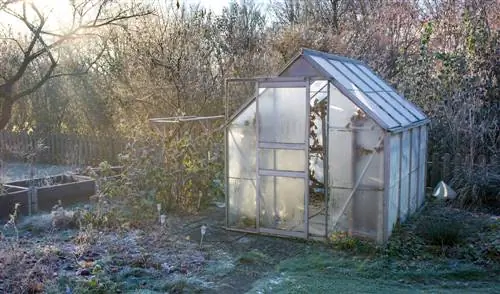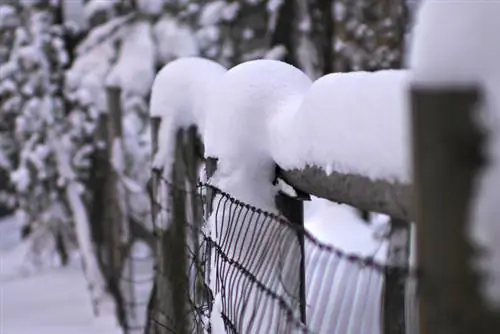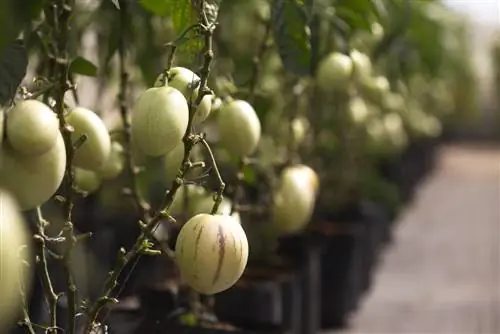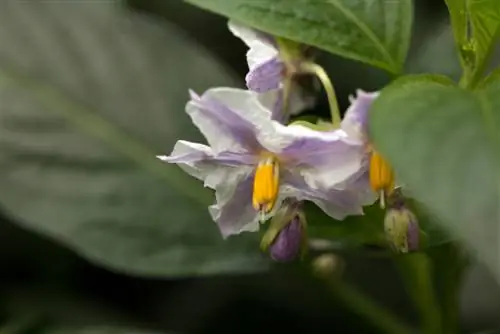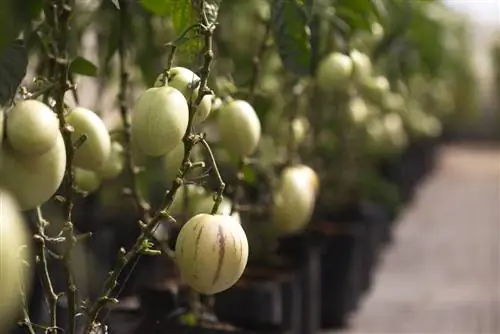- Author admin [email protected].
- Public 2023-12-16 16:46.
- Last modified 2025-01-23 11:22.
In its warm homeland of South America, the perennial melon pear grows outside in the ground in summer and winter. She is unfamiliar with snow and frost. But in this country, only sufficient winter hardiness can guarantee its survival. Can the melon pear develop this trait?
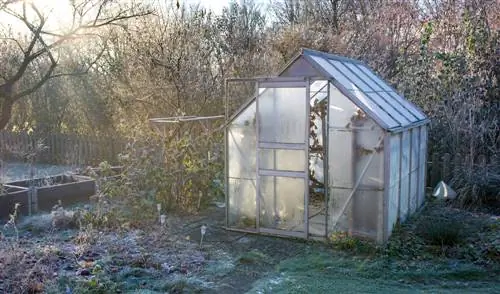
Is the melon pear hardy?
The melon pear is not hardy and cannot tolerate frost temperatures. In cool regions it should be cultivated as an annual plant in a bed or container. However, overwintering indoors at 5-10 °C in a bright room is possible.
Winter hardiness is not available
The melon pear, also called pepino or pear melon, has not a trace of winter hardiness. Their genes are programmed for different climatic conditions than those found in our latitudes. This means she cannot adapt to frost. Even their cold tolerance limit is still around 5°C. However, she prefers temperatures above 10 °C.
No wintering outside
You can plant a melon pear outside in the bed. However, remember that for them sub-zero temperatures mean the end of life. It can only be cultivated outdoors as an annual plant. This also applies to pot specimens that are only left outside.
Covers and layers of leaves cannot keep out as much cold as they need to. Overwintering outdoors cannot work even in mild regions of the country. You should therefore not risk overwintering your melon pear outside.
Wintering indoors is possible
If you have a bright room that is 5-10 °C cool, you can overwinter your pepino plants there until around mid-May.
- Bring pots into the house in autumn
- as soon as the temperature falls permanently below 10 °C
- Dig up plants from the bed beforehand and pot them up
- prune massive specimens if necessary
Tip
Buckets that stand on a furniture trolley (€29.00 on Amazon) are easier to transport back and forth at ground level.
Overlaps with the harvest season
If the weather is changeable in summer, it may be that not all the fruits are ripe at the time of moving. The move must therefore not be postponed until the harvest is finished.
The fruits can ripen in the winter quarters and develop their full aroma. When the last fruit has been picked from the bush, care must not be stopped. Water the soil gently so that it does not dry out completely. The nutrient requirement is so low that fertilization is not carried out during this rest phase.

